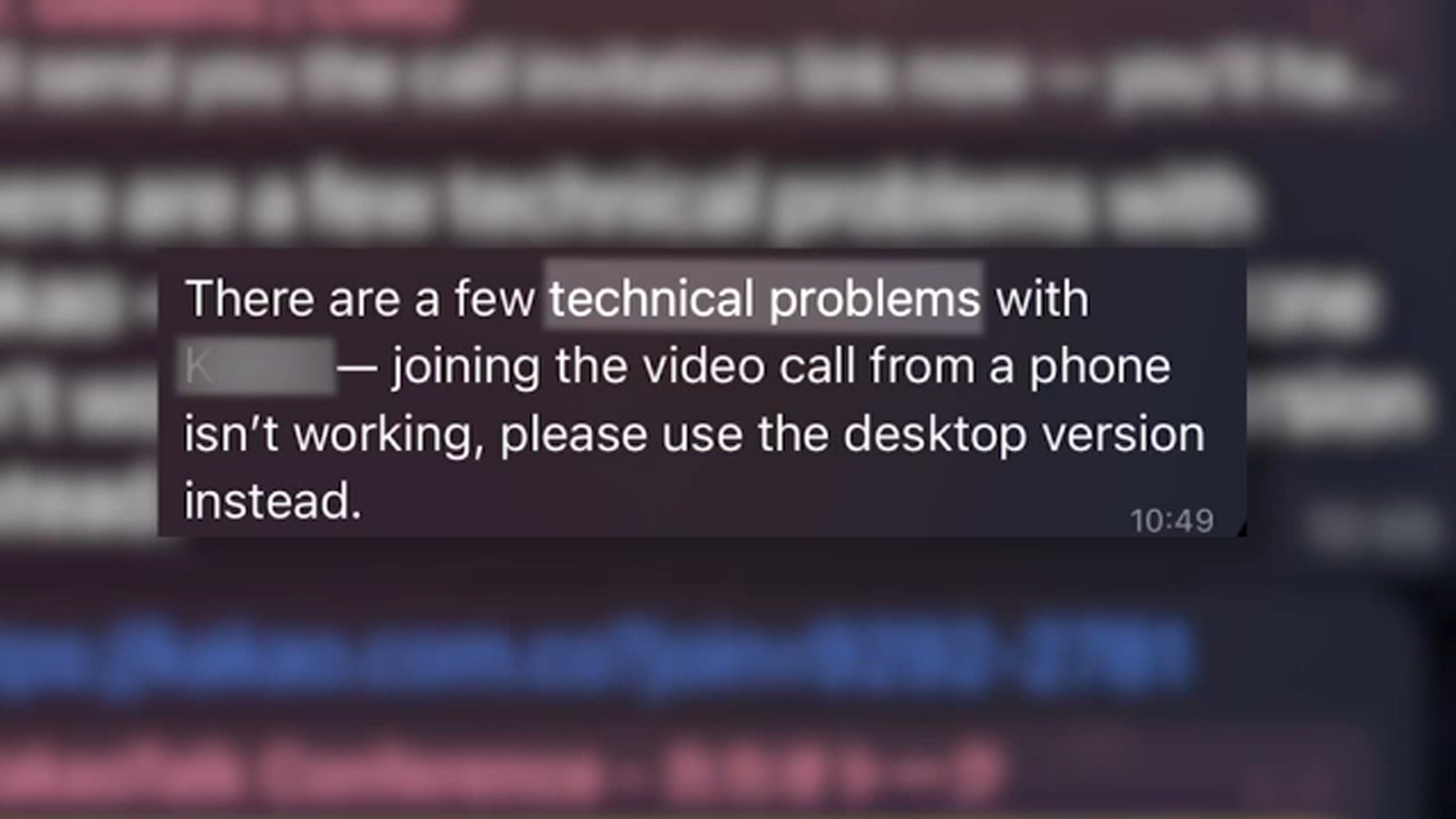
DURHAM, N.C. — Kenneth Nicholson is very involved in the cryptocurrency world. He even has a YouTube channel breaking down ways to invest.
“I started to create videos about cryptocurrency and launch my own exchange on cryptocurrency,” the Durham, North Carolina, resident said.
Nicholson says it’s not unusual for him to be contacted by people wanting to discuss cryptocurrency. The original contact, he says, came through a DM on social media, and their conversations continued for several days. He adds, “They lured me in through a few days of conversation and detailed questions.” After many messages back and forth, Nicholson says, “They just wanted a meeting to discuss this tech. So, it was just a meeting.”
Minutes before that meeting, Nicholson got a message saying there were technical problems with the meeting platform they were using. “The gentleman sent me a link to download this software and I clicked on it and it then opened I have a mac and then opened in my terminal and asked me for my password,” Nicholson adds. He put in his password and then, “The hairs on my neck started to raise. I opened up the script and I saw that there was a lot of funky characters in there.”
Immediately, Nicholson turned off his Wi-Fi, disconnected everything from his computer, and went for a walk – thinking the scammers didn’t get access to anything. But when he logged on to double-check, he says, “I’ve been signed out of all my accounts, and my money was drained.”
His crypto account which had $80,000 was emptied. “It’s one of the risks that I guess you’re willing to take this one hit a bit harder because I’ve never really been scammed like this a targeted scam,” Nicholson said.
His advice to others to prevent getting scammed like he did: slow down when responding to messages. “A lot of times we make mistakes when we run more rushing. I know it’s hard in this day and age when so much is happening but go a little bit slower and just cross your t’s and . your I’s,” Nicholson added.
This is also a good reminder to never click on links from people you don’t know. After he was scammed, Nicholson took a closer look at the link he was sent and instead of the legitimate meeting website, it had extra letters, using .co instead of .com.
Finally, think twice before downloading anything to your computer. While it may seem harmless, in this case it was software that gave the scammers access to all of Nicholson’s accounts once he entered his password.
Copyright © 2025 WTVD-TV. All Rights Reserved.

Duncan Meyers, founder of BDJOBSTODAY, shares expert career advice, job market insights, and practical tips to help professionals grow and succeed in their careers.



